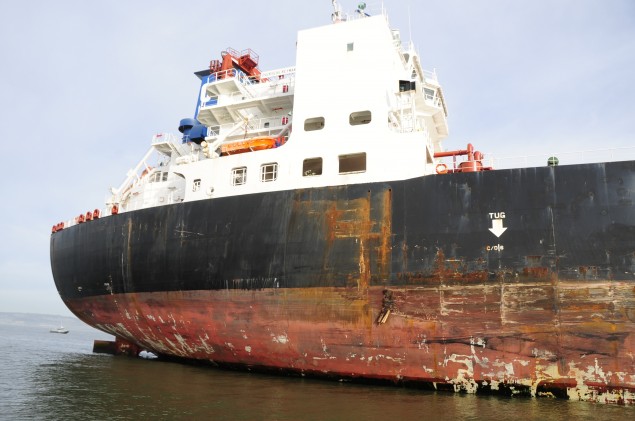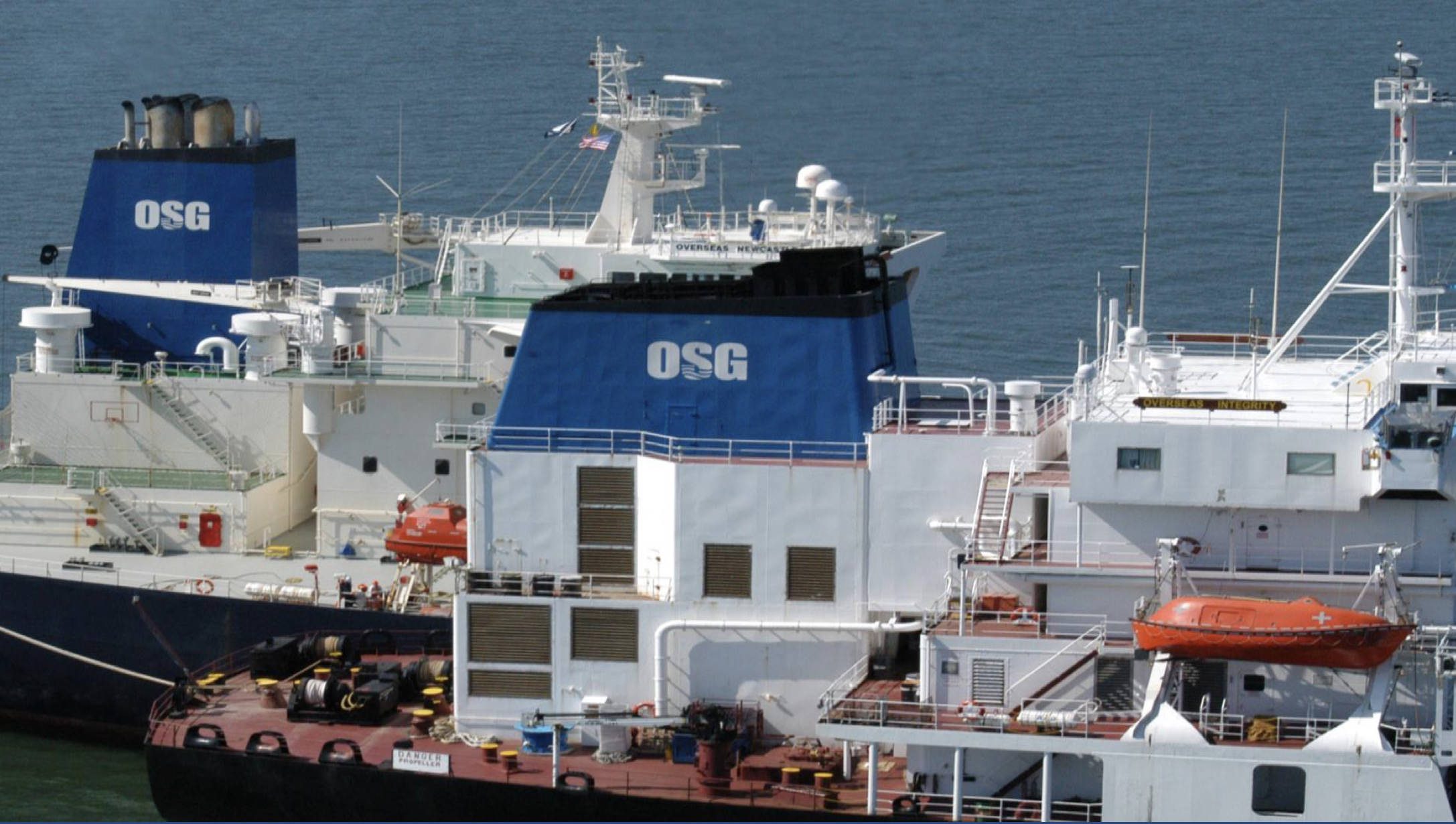US Coast Guard photo of the Overseas Reymar shortly after the incident.
The National Transportation Safety Board has released the Marine Accident Report on its investigation into the January 2013 allision between the Overseas Reymar tanker and a tower of the Francisco–Oakland Bay Bridge, determining that the pilot’s last minute decision to alter course just prior to crossing below the bridge ultimately led to the allision.
On the morning of January 7, 2013, the 752 foot long tanker Overseas Reymar allided with the fendering system of the Bay Bridge’s Echo tower while outbound in San Francisco Bay. No one was injured and no pollution was reported, but damage to the vessel was estimated at $220,000 while the cost to repair the Echo tower’s fendering system amounted to an estimated $1.4 million.
The NTSB has determined that the probable cause of the incident was the pilot’s decision to alter course from the CD (Charlie-Delta) span of the bridge, to the wider DE (Delta Echo) span without sufficient time to avoid alliding with the bridge’s Echo tower.
According to the report, the CD span’s “Radar Beacon”, or RACON, which helps determine the center of the span, was not functioning or displaying on the vessel’s radar screens on the morning of the incident. The pilot told investigators that because of reduced visibility and the absence of RACON information about the span, he decided to change course and instead transit through the DE span, which had a functioning RACON and was visible on the vessel’s radar screens, only it was too late.
The NTSB also determined that the master’s failure to properly oversee the pilot by engaging in a phone conversation with his company during a critical point in the transit contributed to the incident.
The allision led the California Board of Pilot Commissioners to revoke the pilot’s license in early April, saying that he failed to communicate effectively with the crew, lost situational awareness, was “complacent,” and didn’t use all the resources at his disposal during the incident.
The NTSB did not make any recommendations in the report.
The full NTSB report can be downloaded HERE.
Unlock Exclusive Insights Today!
Join the gCaptain Club for curated content, insider opinions, and vibrant community discussions.

 Join The Club
Join The Club







![A screengrab of a map showing an earthquake Mindanao, Philippines on Dec 2, 2023. (Image: US Geological Survey [USGS])](https://gcaptain.com/wp-content/uploads/2023/12/Screenshot-2023-12-02-at-10.45.17-AM-copy.png.webp)





